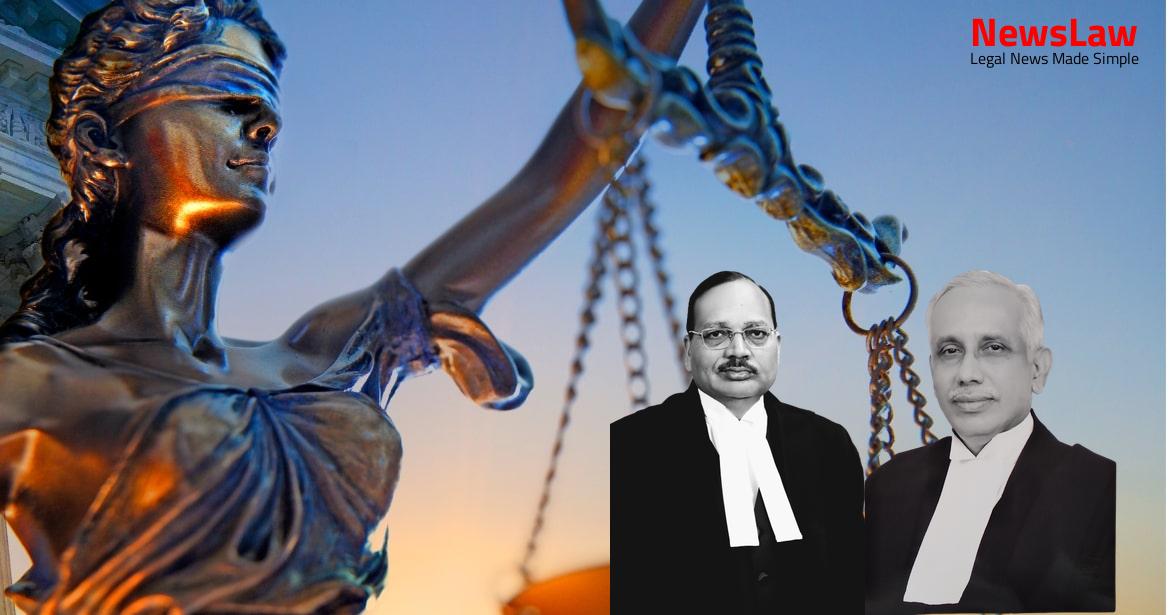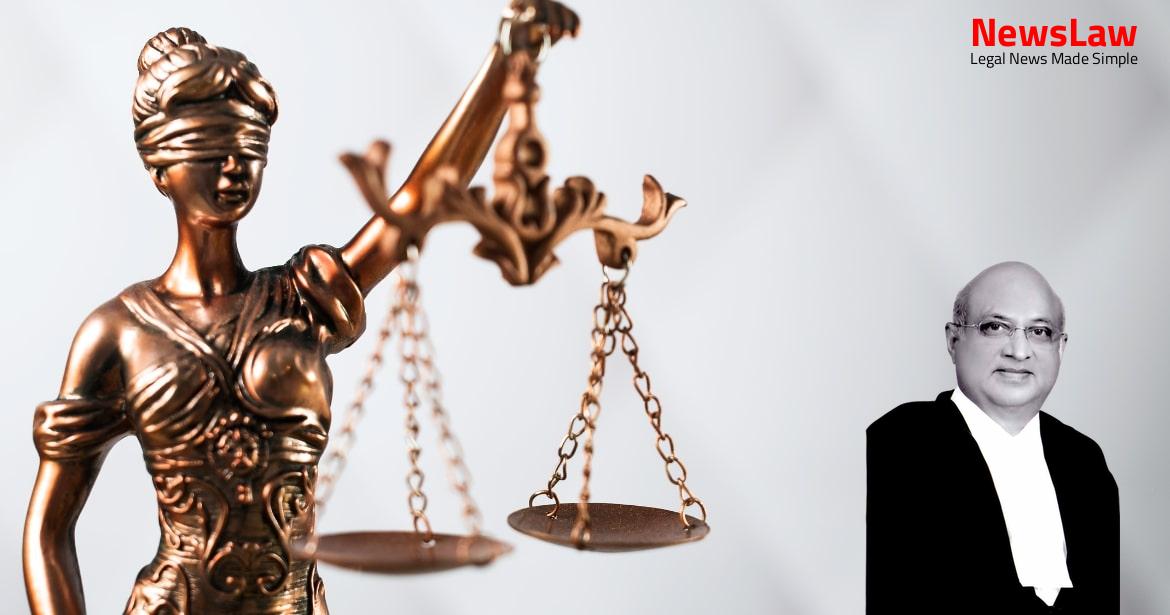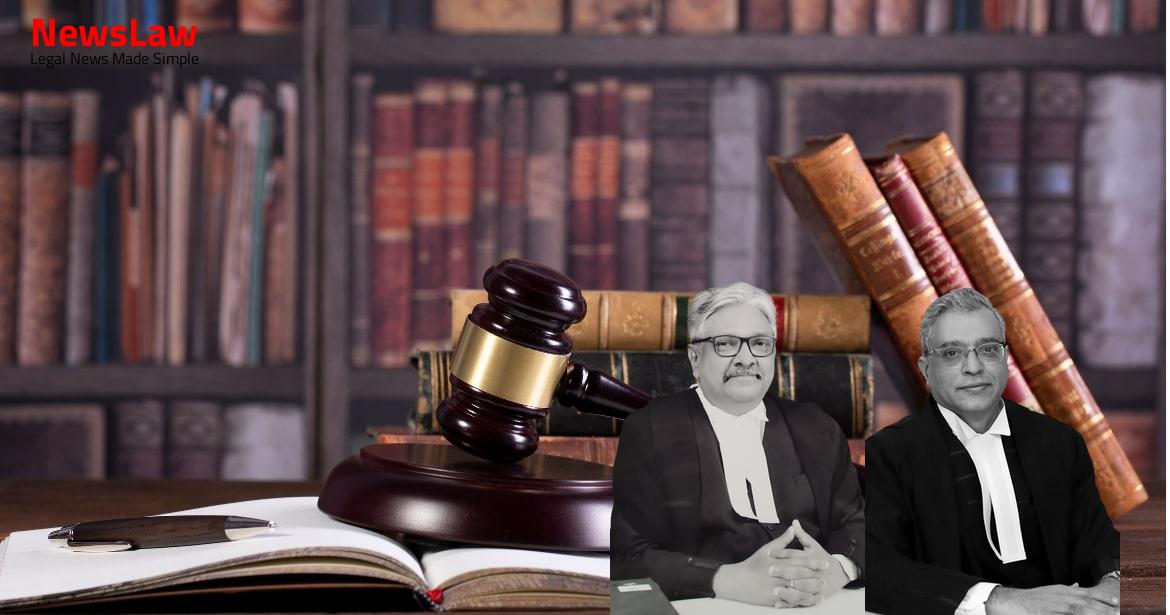Explore the nuanced evaluation of discretionary powers by the Court in a recent legal case. The Court’s thorough legal analysis sheds light on the interpretation of statutes and the balancing of rights and obligations in legal proceedings. Follow along to delve into the complexities of legal judgements and the implications they carry for parties involved.
Facts
- The deceased, aged 26 years, was involved in an accident on 15.04.2011.
- The accident occurred as his bike crashed into a truck parked negligently on the road.
- The truck was parked without any back-light indication.
- The High Court dismissed the appeal in AO No.266 of 2014 citing a delay of 45 days.
- The appellants filed an application for condonation of delay in the High Court, which was dismissed along with the appeal.
- The appellants sought enhancement of compensation for their deceased son through the High Court.
- The initial petition for compensation was filed before the Motor Accident Claim Tribunal.
- The tribunal awarded a total compensation of Rs. 2.24 Lakhs with 6% interest per annum.
Also Read: Legal Analysis on Arbitration Petition Limitation Period
Issue
- The issue in this appeal is whether the High Court erred in dismissing the delay condonation application for 45 days.
Also Read: Analysis of High Courts’ Jurisdiction and Court Orders Under Article 142
Analysis
- Courts must weigh the rights and obligations of both parties even when taking a liberal approach.
- The Court refrains from providing discretionary relief when one party’s gross negligence caused a right to accrue for another party.
- The High Court’s dismissal of the appeal based solely on a short delay was deemed inappropriate, especially in cases involving motor accident claims.
- No malice can be attributed to the appellants for filing the appeal after the ninety-day limit expired.
- The strict approach in the impugned order was considered hyper-technical and unsustainable in the eyes of the law.
- The appeal was allowed, the High Court’s order was set aside, and the case was remanded for fresh consideration on merits.
- The High Court was requested to dispose of the case within six months from the date of communication of the order.
- The Court emphasized on interpreting the term ‘sufficient cause’ in a reasonable, pragmatic, and liberal manner based on the facts and circumstances of each case.
- It was reiterated that a complete petition must be filed within the prescribed time under Section 34 of the Arbitration Act.
- Liberal construction in interpreting ‘sufficient cause’ should align with the concept of reasonableness and proper conduct of the party.
- The purpose of the Arbitration Act is to provide a speedy dispute resolution process.
- Courts must not overlook the fact that successful litigants acquire rights based on judgments and time and costs are involved in litigation stages.
- The Act is a beneficial legislation to provide solace to victims, and it must be given a liberal interpretation.
- The law of limitation has significant consequences on rights and obligations of parties.
- In cases of inordinate delay due to inaction and negligence, a strict approach is required to protect substantive rights.
- The legislative intent of the Motor Vehicles Act is to provide appropriate compensation for victims and protect their rights.
- The interpretation of beneficial legislation needs to be remedial and in line with the statute’s purpose.
- Acknowledging legislative intention is important while interpreting statutory provisions of beneficial legislations like the Arbitration Act.
- Strict compliance with procedures can be relaxed in certain cases to ensure just compensation for victims.
- Finality is a fundamental principle under the Arbitration Act, and a definite time-limit for challenging awards ensures this finality.
- The word ‘may’ in Section 173 of the Act confers discretionary powers upon the Court to entertain appeals even beyond the period of ninety days.
- The extent of the discretionary power conferred by the usage of the word ‘may’ is the pertinent issue at hand.
- In Official Liquidator v. Dharti Dhan (P.) Ltd., the Supreme Court held that when ‘may’ is used in a statute, the purpose of the power should be examined to determine the scope of the discretion conferred.
- Section 173 of the Act allows any person aggrieved by an award of a Claims Tribunal to appeal to the High Court within ninety days.
- It is important to consider the general nature of the legislation in understanding the discretionary power conferred by the word ‘may’ in Section 173.
Also Read: Electoral Malpractices in Mayor Election
Case Title: BRAHAMPAL@SAMMAY Vs. NATIONAL INSURANCE CO. (2020 INSC 483)
Case Number: C.A. No.-002926-002926 / 2020



